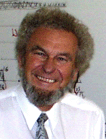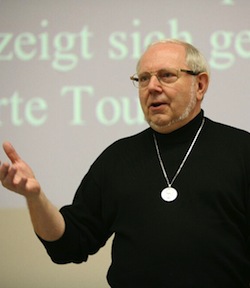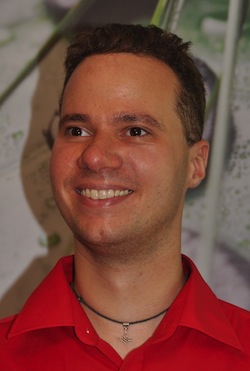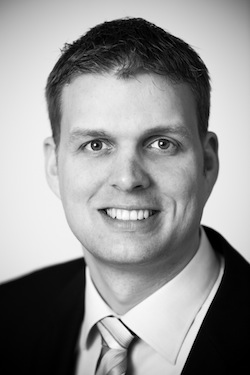Keynotes & Plenary Talks
- Interoperability and Semantics - a reoccurring Issue? → here
- New Technologies: We have seen nothing yet → here
- Ameliorating Music Recommendation (MoMM2013) → here
- Mobile Mobility: The Road User Information Systems of the Future (MoMM2013) → here
Interoperability and Semantics - a reoccurring Issue?
|
Prof. Erich J. Neuhold Professor Research Group Multimedia Information Systems University of Vienna Währinger Straße 29, 1090 Vienna, Austria e-mail: erich.neuhold@univie.ac.at website: http://cs.univie.ac.at/mis-team/infpers/Erich_Neuhold/ |

|
Abstract
Interoperability is a qualitative property of computing infrastructures that denotes the ability of the sending and receiving systems to exchange and properly interpret information objects across system boundaries.
Since this property is not given by default, the interoperability problem and the representation of semantics have been an active research topic for approximately four decades. Early database models such as the Relational Model used schemas to express semantics and implicitly aimed at achieving interoperability by providing programming independence of data storage and access.
After a number of intermediate steps such as Object Oriented Data Bases and Semi - Structured Data such as hypertext and XML document models, the notions of semantics and interoperability became what they have been over the last ten years in the context of the World Wide Web and more recently the concept of Open Linked Data.
With this talk we investigate semantics and interoperability research from the point of view of information systems. It should give an overview of existing old and new interoperability techniques and point out future research directions, especially for concepts found in Open Linked Data and the Semantic WEB.
Biography
Erich J. Neuhold is currently Honorary Professor for Computer Science at the University of Vienna.
Until April 2005 he was Professor of Computer Science at the University of Technology in Darmstadt and Director of the Fraunhofer Institute for Integrated Publication and Information Systems (IPSI) in Darmstadt, Germany an institution of about 120 persons. There he was involved in basic research and applications on all aspects of Information systems and Internet Services, i.e. information and process intensive applications like e-learning, e-government, and e-commerce as well as mobile and location based systems.
Earlier he has been Professor at the University of Stuttgart and the Technical University of Vienna and he has also worked in research and management positions for IBM and Hewlett Packard both in Europe and the USA.
His areas of expertise include interoperable databases, semi- and unstructured databases and information stores for the internet (e. g. XML), intelligent content engineering for multimedia data using standards like RDF and OWL. More recently the Semantic Web and Web Services Computing, Peer-to-Peer and GRID Systems and their applications in digital libraries, cultural heritage and e-commerce and e-sustainability have been the focus of his work. Interoperability and privacy issues have always been an important aspect of his research, lately in the area of Clouds and Open Linked Data.
He is or has been on the Steering Committees if the three main Digital Library Conferences JCDL, ECDL and ICADL and chairs the JCDL Committee. He is a member of various editorial boards and currently serves as one of the Chairs of the IJDL Editorial Board. He is or has been on the Advisory Board of public and private organizations. He is a Fellow of IEEE and of the Gesellschaft fuer Informatik, Germany.
He has published four books and about 200 papers. His work has appeared, among others, in the VLDB Journal, Information Systems, Acta Informatica and in many conferences as, for example, VLDB, ICDE, MMDB, ADL, DL, IRC, CAiSE, EC-Web, EURASIA etc. He has served and is serving in all capacities on many congress, conference and workshop committees and in national and international governmental and corporate planning and evaluation bodies.
New Technologies: We have seen nothing yet
|
Prof. Hermann Maurer em. Prof. Institut für Informationssysteme und Computer Medien Graz University of Technology Inffeldgasse 16c, 8010 Graz, Austria e-mail: hmaurer@iicm.edu website: http://www.iicm.tugraz.at/maurer |

|
Abstract
In this talk we will argue that developments in science will continue with increasing speed, opening completely new vistas. Why this is so is not just due to the usual trivial observations such as "developments are happening very fast and it seems even at accelerating speed". Rather, we will show a number of much deeper reasons, why nw developments will come at us as surprise, and to an extent hard to imagine. Some of the arguments are surprising in themselves and shed a light on how we think, and how we have to change our thinking to at least grasp a bit of what is going to happen. Surprisingly, it also turns out that some reasons show the weaknesses of our information age and how knowing this, we can become better in handling complicated situations and negotiations. If this sounds all a bit vague, it is, and it is vague on purpose: the speaker wants to surprise everyone in the audience a few times by presenting concrete samples and does not want to give away some of the highlights in this abstract.
Biography
Hermann Maurer is Emeritus Full Professor from the Graz University of Technology where he was Chair or vice-Chair of the Institute for Information Systems and Computer Media since 1988. He was co-founder and chairman of the board of the Hyperwave AG Munich 1997-2005, and vice-chairman of same company till 2009; founder, and later scientific advisor of the first research center on Knowledge Management in Austria.
Prof. Maurer received a number of awards, among them the "Austrian Cross of Honours for Arts and Science Class I". He received Honorary Doctorates from the Polytechnical University of St. Petersburg, the University Karlsruhe, Germany, and of the University of Calgary, Canada.
Hermann Maurer is author of twenty books, over 700 papers in various publications, founder and Editor-in-Chief of 'Journal of Universal Computer Science' till end of 2011, Co-Editor of 'Journal of Research in Innovative Teaching' and member of over a dozen Editorial Boards. He founded the Conference series ED-MEDIA and WebNet/eLearn and the conference I-KNOW; he was European Representative at ICCE till 2000.
He was responsible for the development of the first second generation Web Based Information System Hyperwave, and an Learning Suite, a modern net based teaching platform, and a large electronic encyclopaedia Austria-Forum that in its first version has some 400.000 entries per February 2013.
Prof. Maurer has given over 1000 talks on various occasions, including many as invited or keynote speaker at international conferences. He has been an outspoken critic of some data-mining activities in the WWW. He worked in a variety of areas including applications of computers to exhibitions and museums, Web based learning environments, languages and their applications, data structures and their efficient use, telematic services, computer networks, computer supported new media, dynamic symbolic language and techniques to fight plagiarism. His current main research and project areas are networked multimedia/hypermedia systems; electronic publishing and applications thereof, information integration, future implications of computers, and computers in Science Fiction.
Ameliorating Music Recommendation
|
Dr. Markus Schedl Assistant Professor Department of Computational Perception Johannes Kepler University Linz Altenberger Strasse 69, 4040 Linz, Austria e-mail: markus.schedl@jku.at website: http://www.cp.jku.at/people/schedl/ |

|
Abstract
Successful music recommendation systems need to incorporate information on at least three levels: the music content, the music context, and the user context. The former refers to features derived from the audio signal; the second refers to aspects of the music or artist not encoded in the audio, nevertheless important to human music perception; the third refers to contextual aspects of the user which change dynamically.
In this keynote, we briefly review the well-researched categories of music content and music context features, before focusing on user-centric models, which have been neglected for a long time in retrieval and recommendation approaches. In particular, we address the following tasks: (i) geospatial music recommendation from microblog data, (ii) user-aware music playlist generation on smart phones, and (iii) matching places of interest and music.
The approaches presented for task (i) rely on large-scale data inferred from microblogs, motivated by the fact that social media represent an unprecedented source of information about every topic of our daily lives. Information about music items and artists is thus found in abundance in user-generated data. The questions of how to infer information relevant to music recommendation from microblogs and what to learn from them are discussed. So are different ways of incorporating this kind of information into state-of-the-art music recommendation algorithms.
The presented approaches targeted at tasks (ii) and (iii) model the user in a more comprehensive way than just using information about her location and music listening. We report results of a user study aiming at investigating the relationship between music listening activity and a large set of contextual user features. Based on these, an intelligent mobile music player that automatically adapts the current playlist to the user context is presented.
Eventually, we discuss different methods to solve task (iii), i.e., to determine music that suits a given place of interest, for instance, a major monument. In particular, we look into knowledge-based and tag-based methods to match music and places.
Biography
Markus Schedl graduated in Computer Science from the Vienna University of Technology. He earned his Ph.D. in Computational Perception from the Johannes Kepler University Linz, where he is employed as Assistant Professor at the Department of Computational Perception. He further studied International Business Administration at the Vienna University of Economics and Business Administration as well as at the Handelshögskolan of the University of Gothenburg, which led to a Master's degree.
Markus (co-)authored 80 refereed conference papers and journal articles (among others, published in ACM Multimedia, SIGIR, ECIR, IEEE Visualization; Journal of Machine Learning Research, ACM Transactions on Information Systems, Springer Information Retrieval, IEEE Multimedia). Furthermore, he serves on various program committees and reviewed submissions to several conferences and journals (among others, ACM Multimedia, ECIR, IJCAI, ICASSP, IEEE Visualization; IEEE Transactions of Multimedia, Elsevier Data & Knowledge Engineering, ACM Transactions on Intelligent Systems and Technology, Springer Multimedia Systems).
His main research interests include web and social media mining, information retrieval, multimedia, music information research, and user interfaces. Since 2007, Markus has been giving several lectures, among others, "Music Information Retrieval", "Exploratory Data Analysis", "Multimedia Search and Retrieval" and "Learning from User-generated Data". He further spent several guest lecturing stays at the Universitat Pompeu Fabra, Barcelona, Spain, the Utrecht University, the Netherlands, the Queen Mary, University of London, UK, and the Kungliga Tekniska Högskolan, Stockholm, Sweden.
Full publication record is available at here.
Mobile Mobility: The Road User Information Systems of the Future
|
Dr.-Ing. Stefan Schulte Postdoctoral Researcher Distributed Systems Group Vienna University of Technology Argentinierstrasse 8/184-1, 1040 Wien, Austria e-mail: s.schulte@infosys.tuwien.ac.at website: http://www.infosys.tuwien.ac.at/staff/sschulte/ |

|
Abstract
Within the last years, the availability of mobile Internet connections has been increased significantly. Nevertheless, the impact of this ubiquitous Web access has not arrived at road user information systems with a few exceptions for navigation systems or traffic monitoring. Even those services that are available today are very limited, as they mainly use GPS or TMC information combined with Web-based maps. Making full use of the Internet availability can enable a whole range of new services and apps for road users, helping them to make their journey safer, more comfortable, and more environmental friendly.
In this talk, we will identify current research gaps in road user information systems, namely the need to overcome heterogeneous and missing interoperability of relevant data sources, a missing end-to-end integration of data and functionality, and the demand for a homogeneous, unified user interface to road user information systems. Eventually, we will present some results from the ongoing EU FP7 project SIMPLI-CITY - The Road User Information System of the Future, which contributes to solve these issues.
Biography
Dr.-Ing. Stefan Schulte is a Postdoctoral Researcher at the Distributed Systems Group at Vienna University of Technology and the project manager of the ongoing EU FP7 project SIMPLI-CITY - The Road User Information System of the Future (http://www.simpli-city.eu). Before joining TU Vienna, Stefan headed the research group "Service-oriented Computing" at the Multimedia Communications Lab at Technische Universität Darmstadt, Germany, as well as the SOA Competence Center at Hessisches Telemedia Technologie Kompetenz-Center (httc e.V.), Darmstadt.
Stefan's research strives to bring us closer to the efficient ad hoc utilization of distributed computing resources through the Internet. In recent years, two major trends in distributed systems have been the subject of large interest both in the software industry and IT research. First, organizations' demand for IT-based support for cross-organizational collaboration has led to the wide adoption of the paradigm of Service-oriented Architectures (SOA). Related to that, the standardization of Web service technologies has led to the emergence of the (yet to be fulfilled) "Internet of Services", i.e., a global SOA. Second, the need for agile and flexible IT systems has led to the rise of Cloud Computing as the dominating paradigm for provisioning computing resources in a scalable, on-demand fashion.
His research interests span the areas of SOA and Cloud Computing, with a special focus on Quality of Service (QoS) and Quality of Experience (QoE) aspects. He is working on concepts and implementations that help to bridge the heterogeneity arising from different communication protocols and technologies.
